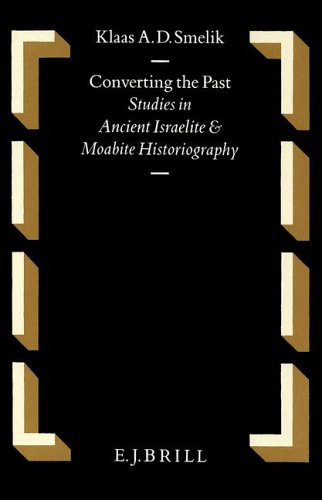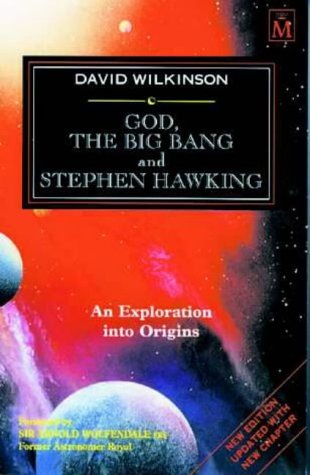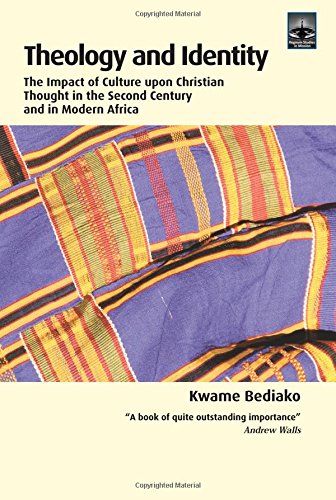Volume 20 - Issue 3
End of the Millennium
By Stephen N. WilliamsRight now, in grand institutions and in humble homesteads, in the churches and outside them, plenty of folk are preparing for the end of the millennium. Not even Methuselah could have celebrated two such occasions; it will not come our way again; so it behoves us all to seize the opportunity and mark the occasion with our celebrations. Governments with precious little to celebrate in terms of their political track record are planning to unite their people with a display of gladness and hope. Individuals with precious little to celebrate in terms of their personal circumstances are planning to renew their lives with a like display. At least, these are the appearances. Of course, there is another side to things. Whatever the public profile, Thoreau’s words remain hauntingly apt: ‘The mass of people lead lives of quiet desperation.’
As the build-up commences, we may lament people’s willingness to be distracted. We know how the grand occasion, the momentous event, the televized tragedy, provide us with a welcome opportunity to be spectators. As participants in life, we find our fortunes to be pretty shabby, so it is a relief to attend, with the best of reasons, to the Great Event. Indeed, we are sometimes participants, and not mere spectators, in these things. However, our participation is still a break from the routine of life or from its long-term prospects and so there is the element of distraction. But many of us, as Christians, will find in the figure 2000 no magic to lure us or mystique to enthrall us, just yet another sign, albeit dramatic, of our human determination to prefer fantasy to reality.
On the other hand, we may often lament people’s unwillingness to be distracted. In my student days, a bunch of frustrated evangelical theology students nailed, one Thursday evening, a notice to the entrance door of a prestigious University Divinity School. It read: ‘Due to unforeseen events, no classes will be held this Friday. Lectures will resume on Monday, after the Parousia.’ Rightly or wrongly, it was felt that the love of theological ideas had absurdly wrenched the great Christian realities from the grasp of those dedicated to thinking about them. Unwillingness to be distracted from one’s thoughts, including the thought of the Parousia itself, was a demoralizing sign that theological centres and religious centrality can fly apart.
All in all, we are surely justified in preparing ourselves for the possibility that 2000 will mark up a new stage in the problem of recalling the world and the church from its willingness or unwillingness to be falsely or rightly distracted. No more than the possibility: we always hope that the return of the Lord is imminent. But talk of the return of the Lord, long incredible to many people, could become doubly so in the third millennium. And talk of the Lord at all, also incredible to many people, could encounter the same fate. Admittedly, this is a largely Western point of view at the moment of writing. We are familiar enough with the way in which religious belief in its traditional Christian form is, at best, an anachronism, in the eyes of many. Indeed, it has become something of an anachronism to call it an anachronism, for we are equally familiar with the fact that many have declared war on religious belief in its traditional Christian form, regarding it as a living poison, not a bulky corpse, an antagonist more than an anachronism. In 2000, will some not draw a deep breath and say: ‘This we have had for two thousand years; let the ages of liberty now begin’? We may be very hopeful about keeping the language of Christian faith and eschatological hope alive until the year 2000. In fact, we may think that our language has a better chance than it has had for a long time, of edging in to the realm of public discourse, expectation, hope and anticipation. By all means, let us take encouragement from such a possibility and seize any opportunities that our day affords. But let us also in faith, not in faithlessness, anticipate the possibility that our difficulties in persuasion and communication will be enhanced if a new millennium gets under way in continuity with the old.
It is a warning apt for those of us engaged in theological study. For while a large number of people may be open—even increasingly open—to the gospel, intellectual currents of our day continue to flow in a direction away from the credibility of Christianity. As theologians, we can be incredibly cloistered, confusing the world of theological exchange with the world of personal realities. We distortedly think of the Department of Theology as a microcosm of the world. And yet, the world of theological exchange is a world of personal realities; it is just that it is not the whole of it. But ideas formulated, transmitted, challenged, scorned, embraced, in lectures, seminars, arguments, essays, journals, can form, malform, deform, reform, transform the persons who trade in them. We may easily get the battle of ideas out of perspective. And we may easily confuse between those ideas which basically matter and those which basically do not. Yet, thoughts matter, as every student of the Bible will know. And if the advent of the third millennium does not demonstrate that to us, the advent of that Day will.
The mood and tone of this editorial are not designed to set the mood and tone of those which, d.v., will follow. But it is as well to set the work of Themelios in the context of the coming end of the millennium. For, like it or not, consciousness of the calendar will be the backdrop of much (though certainly not all) of the thinking and planning of those whose situation allows or impels them to think and to plan very much. Be that as it may, our confidence in Christ need not wane and can certainly grow as the ages run their course. We do well to ponder, in conclusion, words written by Dietrich Bonhoeffer over half a century ago:
In Soloviev’s story of the Antichrist, in the last days before Christ’s return, the heads of the persecuted churches discuss the question of what is for each of them the most precious thing in Christianity; the decisive answer is that the most precious thing in Christianity is Jesus Christ Himself. That is to say, that in the fact of Antichrist only one thing has force and permanence, and that is Christ Himself. Only he who shares in Him has the power to withstand and to overcome. He is the centre and the strength of the Bible, of the Church, and of theology, but also of humanity, of reason, of justice and of culture. Everything must return to Him; it is only under His protection that it can live. There seems to be a general unconscious knowledge, which, in the hour of ultimate peril, leads everything which desires not to fall victim to the Antichrist to take refuge with Christ.1
Whether or not there is unconscious knowledge, Christ will one day be revealed as the unassailable truth. We work in the light of that for which we wait.
1 D. Bonhoeffer, Ethics (Macmillan, New York: 1965), p. 56.
Stephen N. Williams
Stephen Williams is professor of systematic theology at Union Theological College in Belfast, Northern Ireland, and served as general editor of Themelios from 1995 to 1999.






